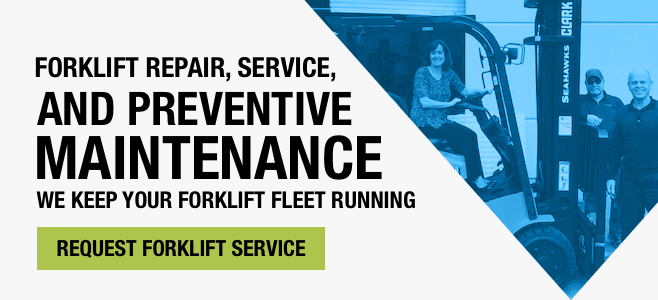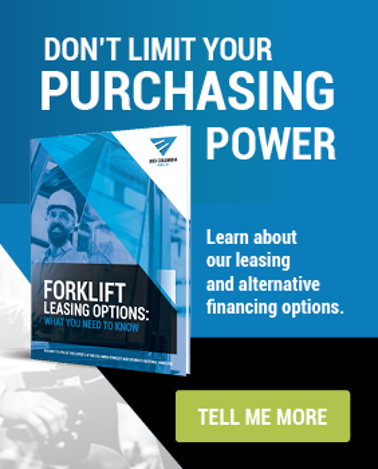5 Reasons Why Li-ion Forklift Batteries Are Better than Lead-Acid
by Phil Hanford, on May 13, 2022 at 3:06 PM
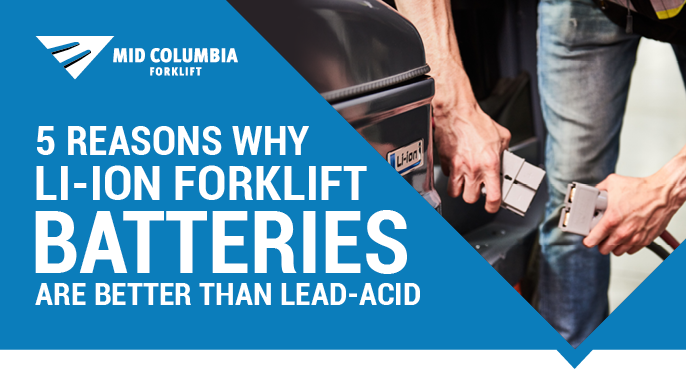 Stop right there.
Stop right there.
If you’re right around the corner from purchasing electric forklifts for your business, there are a few things you should know before you do.
A lot of smart businesses are choosing electric for all the right reasons.
But there’s one type of electric forklift that’s an absolute game-changer - those with lithium-ion batteries.
Stay tuned to learn more about why and how they might make a difference in your business.
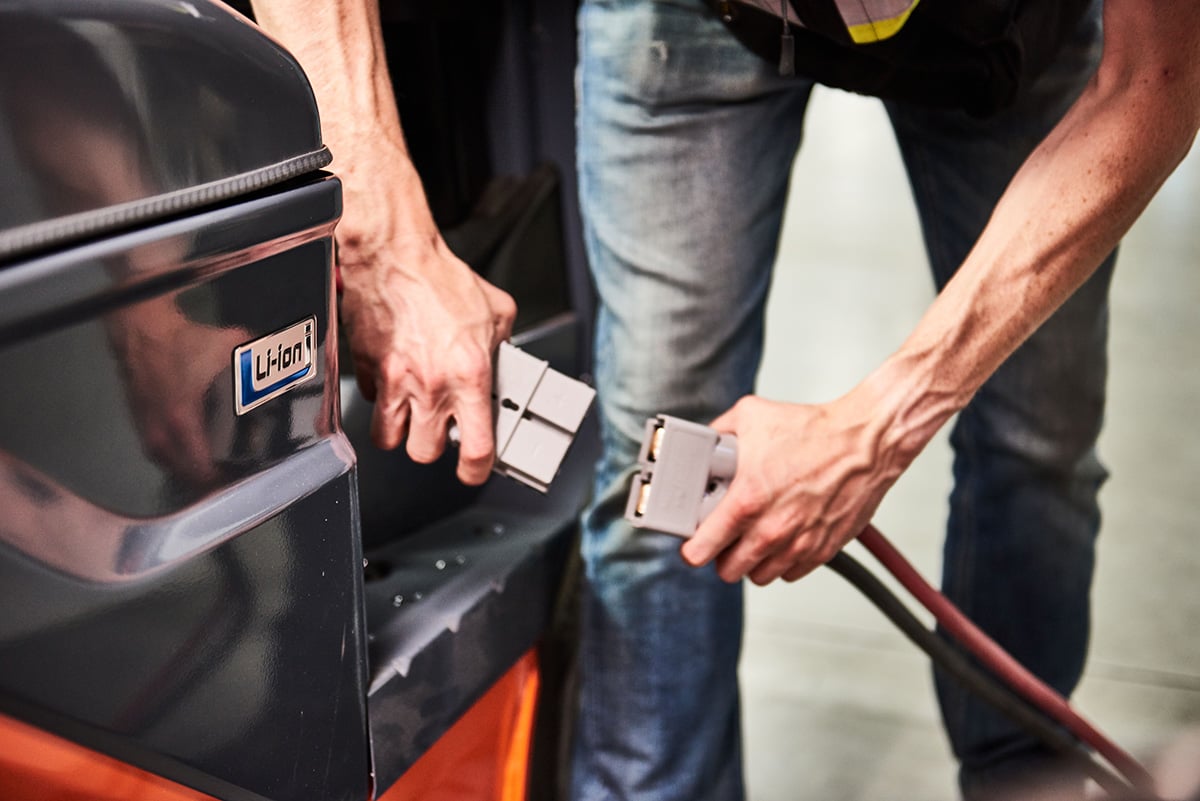
Li-ion Batteries - Not Your Granddad’s Batteries
The only thing more important than the power source for your forklift is the person operating it.
Lead-acid batteries are the traditional electric option and it’s been that way for years, back to the release of electric forklifts around the 1950s. They’ve proven to be reliable, and improvements have been made over time to make them more suitable to rugged operations, though they do require a lot of maintenance.
Lithium-ion batteries were not mass-produced until the 1990s and are built around smarter, cleaner, more efficient technology that has advanced even further today.
In fact, this is the same tech that powers Tesla’s electric vehicles. In other words, they’re not your grandad’s batteries.
The 5 Benefits of Switching to Li-ion
Truth be told, there are more than five reasons to switch, but before we go any further, we can tell you right now the best way to make an informed decision yourself.
If you have anybody you know who has made the switch to li-ion, call them. The countless people that we’ve seen make the switch to li-ion are excited about the difference it makes, for the reasons we’ll cover below.
1. Li-ion batteries are low maintenance
For a lot of people we talk to, this is the biggest difference - they love the fact that little to no maintenance is required.
Lead-acid batteries contain a balance of acid and water, and when that acid sinks to the bottom (a regular occurrence), that’s when the battery needs to be equalized. If you have these batteries, you’re probably already familiar with this process, because it happens maybe once a week. And when it does, the forklift doesn’t hold a charge nearly as well.
Also, the fluid levels need regular checking, and the temperature must be carefully regulated with cool-down periods. If not, the life of the battery will be reduced. Lithium-ion batteries, on the other hand, have no fluid, no trouble with reasonable temperature changes, and they equalize themselves.
Not only will you save money that would have otherwise been spent on regular maintenance, but you’ll also save on energy bills thanks to li-ion battery's high energy efficiency.
2. Li-ion forklifts run longer
Want to increase your team’s productivity? Li-ion batteries have longer run times, which means fewer interruptions and more spent time doing tasks that add value, rather than charging forklift batteries.
Li-ion performance does not decrease over time as the battery discharges, unlike FLA batteries.
3. Li-ion forklifts are easier to charge
It’s important that operators monitor battery power on any electric model. However, for lead-acid batteries, the forklift must not be used past the 30% mark, with some manufacturers recommending that operators don’t go under 50%.
Lead-acid batteries can be used until the 20% mark before they require charging, another factor that reduces downtime and increases team productivity. Also, li-ion batteries don’t need to be swapped out as FLA batteries do. Li-ion batteries charge faster and allow operators to “opportunity charge,” which is to say they can charge in-between break times since no cooldown period is required.
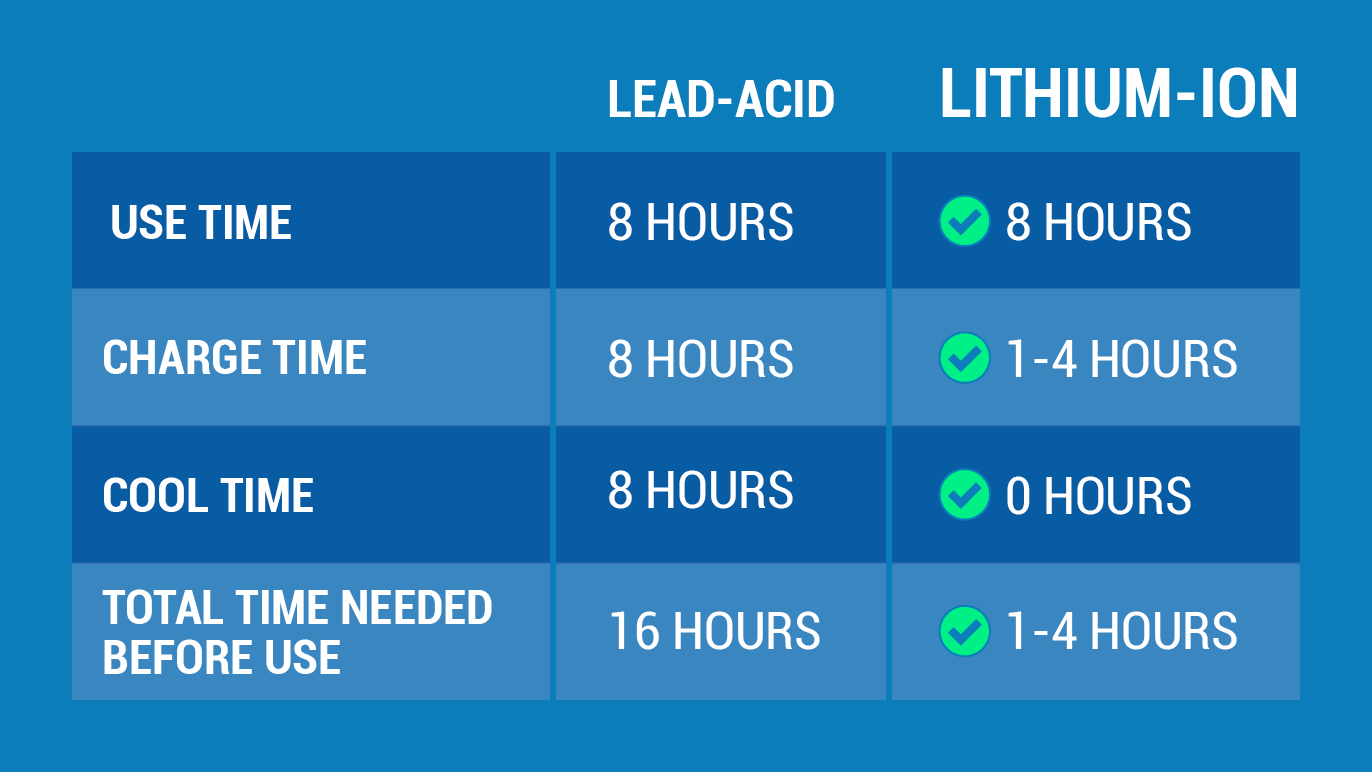 (Charge Time Source)
(Charge Time Source)
4. Li-ion forklifts have longer lifespans
Li-ion forklifts have longer lives than their lead-acid counterparts.
Whereas a lead-acid battery model might last 1,500 cycles under normal conditions, a li-ion battery model should last between 2,000 and 3,000.
5. Li-ion forklifts are safer for the environment and people
Of course, any electric option is going to be cleaner than the fumes that come from combustion engines, so this point is especially important to businesses who care about their environmental and community impact.
Since lead-acid batteries are made of lead and sulfuric acid, they still pose a few risks that li-ion batteries don’t. If improperly handled, the fluid could spill. And charging stations must be carefully vented because, as the batteries charge, they heat up and can produce fumes.
If you’re capable of replacing your FLA battery charging station area, you can open up room for additional storage, which is something just about every business can appreciate. Especially if it means less clutter in high-traffic areas.
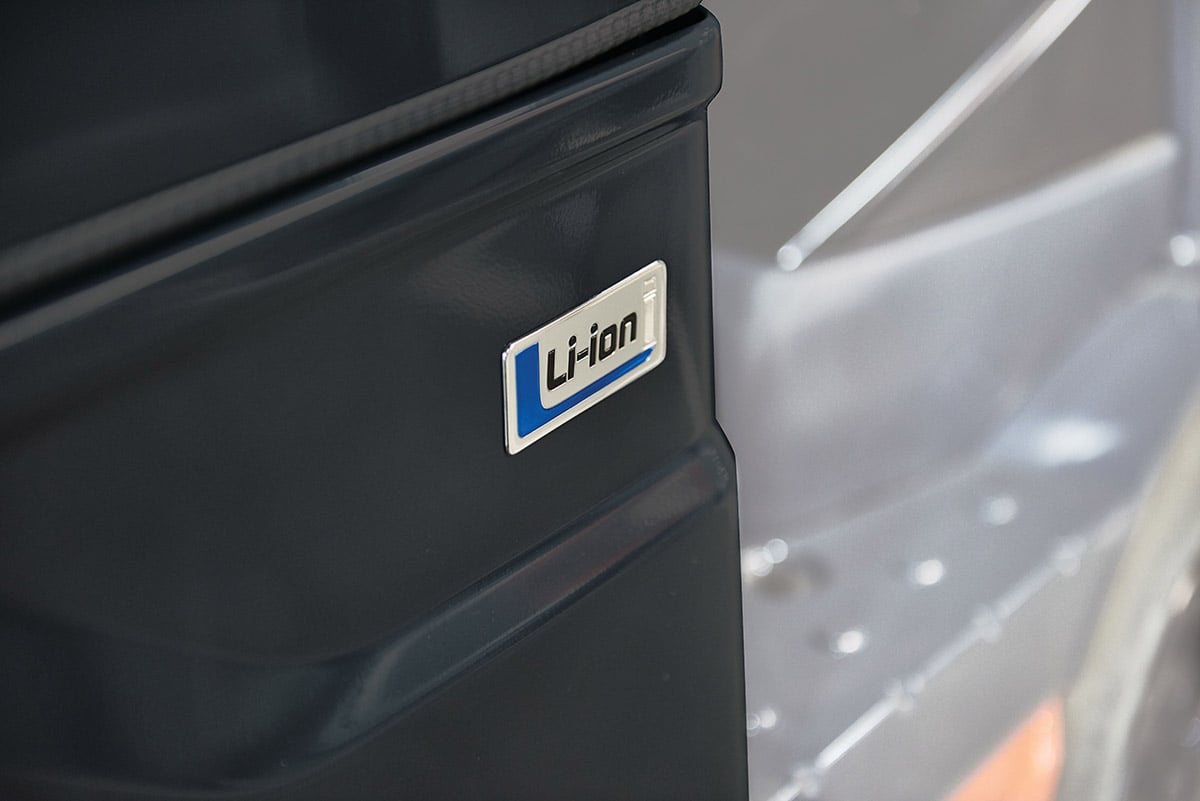
2 More Things You Should Know About Lithium-ion Forklifts
Now, to be transparent, li-ion forklifts do cost more upfront, but they quickly pay for themselves in the amount saved on maintenance alone, not to mention other factors, such as increased productivity and energy efficiency.
And the last thing you should know is that we have several strong OEM partners that offer a wide variety of li-ion solutions, not just forklifts. Depending on what your business needs, from walkies to 80V industrial forklifts, our team of experts, backed by our partners, is here to help you learn more so that you can make the best choice for your business.
If you’re ready to find out how you can implement li-ion into your fleet, contact us online or by phone today and we’ll be more than happy to help.
Auburn 253-854-5438
Pasco 509-547-7413
Wenatchee 509-663-9009
Yakima 509-457-5137
Further Reading:
How to Switch from IC to Electric Forklifts to Go Green and Save Money
Top 3 Best-Selling Forklift Clamps in Washington State
How To Calculate Forklift Minimum Aisle Widths



